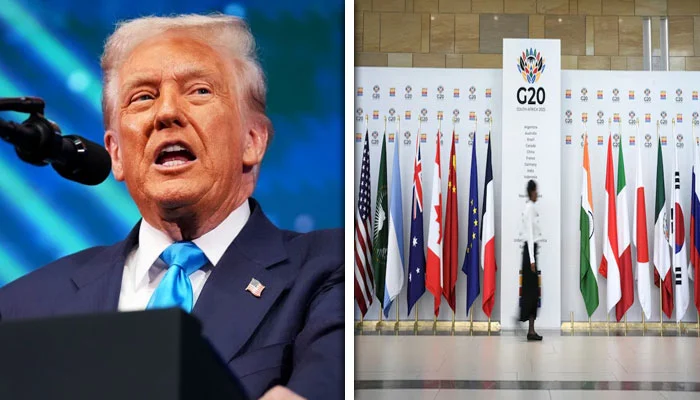Washington D.C.: In an unexpected and significant turn in international diplomacy, US President Donald Trump has officially announced that he will not attend the upcoming G20 Summit. The decision has raised eyebrows among global leaders and sparked questions about the future of multilateral cooperation.
President Trump personally clarified his position, stating that the United States would boycott the critical summit. Adopting a firm stance, he asserted that not only would he be absent, but no official from the US government would participate in the meeting.
The G20 Summit, which convenes leaders from the world’s major economies, is scheduled to take place in South Africa from November 22 to November 23. The absence of the US is likely to have wide-ranging implications for the summit’s agenda and outcomes, particularly on pressing issues such as global trade, economic stability, and climate change.
The US President’s decision comes at a time when the world is grappling with major global challenges. This boycott is being viewed by international observers as a manifestation of unilateral tendencies in US foreign policy, a stance that may provoke strong reactions from other member states.



